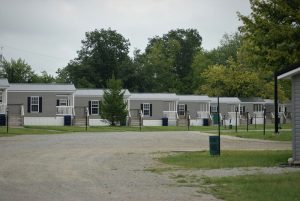Financing mobile home parks is a complex process that can vary significantly depending on the state in which the park is located. State-specific regulations, market conditions, and local economic factors all play a crucial role in determining the availability and terms of financing. In this article, we will explore how these factors influence financing options for mobile home parks across different states.
Regulatory Environment
One of the primary factors influencing mobile home park financing is the regulatory environment. Each state has its own set of laws and regulations governing the development, operation, and financing of mobile home parks. These regulations can impact everything from zoning and land use to tenant rights and environmental requirements.
- Zoning and Land Use: States and local municipalities have specific zoning laws that dictate where mobile home parks can be located. Some states have more lenient zoning laws, making it easier to develop new parks, while others have stricter regulations that can limit development opportunities. These zoning laws directly affect the value and financing prospects of mobile home park properties.
- Tenant Rights: States also vary in terms of tenant rights and protections. States with more robust tenant protection laws may present additional challenges for park owners, as these laws can impact the park’s operational costs and, consequently, its profitability. Lenders consider these factors when evaluating the risk associated with financing a mobile home park in a particular state.
- Environmental Regulations: Environmental regulations, such as those governing water usage, waste disposal, and flood zones, can also affect financing. States with stringent environmental regulations may require additional compliance measures, increasing the costs and complexity of financing mobile home parks.
Market Conditions
State-specific market conditions are another critical factor influencing mobile home park financing. The demand for affordable housing, local economic conditions, and demographic trends all play a role in shaping the market for mobile home parks.
- Demand for Affordable Housing: States with a high demand for affordable housing, such as California and Florida, often have more favorable financing conditions for mobile home parks. High demand translates to higher occupancy rates and stable rental income, making these parks attractive to lenders.
- Economic Conditions: Local economic conditions, including employment rates, income levels, and economic growth, affect the financial stability of mobile home park residents and, by extension, the park’s financial performance. States with strong economies are likely to offer better financing terms due to the lower risk of loan default.
- Demographic Trends: Demographic trends, such as population growth and aging populations, also influence the market for mobile home parks. States experiencing population growth or with a significant retiree population may have more favorable market conditions for mobile home parks, leading to better financing options.
Local Financing Institutions
The presence and expertise of local financing institutions can significantly impact the availability and terms of mobile home park financing. States with a higher concentration of lenders experienced in mobile home park financing tend to offer more competitive financing options.
- Specialized Lenders: Some states have lenders who specialize in mobile home park financing and understand the unique challenges and opportunities associated with this asset class. These lenders are more likely to offer tailored financing solutions that meet the specific needs of mobile home park owners.
- Government Programs: State-specific government programs and incentives can also play a role in financing. For example, some states offer tax incentives, grants, or low-interest loans to promote the development of affordable housing, including mobile home parks. These programs can make financing more accessible and affordable.
Case Studies: Financing in Different States
To illustrate how state-specific factors influence financing, let’s look at two case studies:
- California: California has a high demand for affordable housing, making mobile home parks an attractive investment. However, the state’s stringent environmental regulations and robust tenant protection laws can complicate financing. Lenders in California often offer competitive financing terms due to the high demand, but they also factor in the additional compliance costs associated with state regulations.
- Texas: Texas offers a more lenient regulatory environment and has a growing population, making it an appealing market for mobile home parks. The state’s relatively low cost of living and strong economy contribute to favorable financing conditions. Lenders in Texas may offer more flexible financing options with fewer regulatory hurdles, making it easier for park owners to secure funding.
Conclusion
Financing mobile home parks is heavily influenced by state-specific regulations, market conditions, and the presence of specialized lenders. Understanding these factors is crucial for park owners and investors seeking to navigate the complexities of financing in different states. By staying informed about local regulations and market trends, mobile home park operators can better position themselves to secure favorable financing terms and successfully manage their investments.





